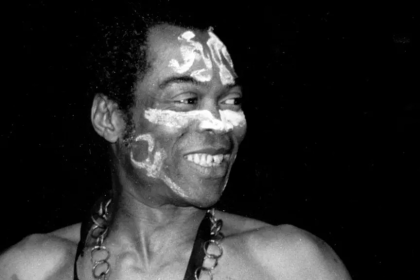Even as we have entered a new year filled with lots of hopes and dreams, many of us are looking for the best ways to make our lives easier.
These easy hacks will help you change your life and help you gain better results in your life.
Sleep
Go to bed on time
Respect your circadian rhythm by going to bed and getting up at regular times, says Guy Meadows, managing partner at the Sleep School. By doing this, “you’re more likely to wake up at the right time in your sleep cycle, which means you’re more likely to feel refreshed”. Wherever your daily sleep requirements sit in the ideal range of between seven and nine hours for adults, keeping a regular sleep-wake cycle impacts everything from “appetite hormones to your heart rate and your blood pressure”.
Declutter your bedroom
“Your bed is for sleep and sex only,” says Renata Riha, consultant in sleep and respiratory medicine at the University of Edinburgh. “It’s not for watching television, knitting, reading for hours on end, or eating. Your bedroom should be a space that invites sleep.” Declutter, she says, “step by step, drawer by drawer”.
Switch off from work earlier
“Disengaging from work, email and your phone for at least an hour prior to bed can be helpful,” says Riha, who is also co-director of Sleep Consultancy Ltd. Meanwhile, put some thought into activities that help you wind down. She suggests a hot shower an hour before bed, because when you get out, your body will cool to an optimal sleep temperature. Or, “sharing your problems, if you can, with an engaged and sympathetic listener”.Advertisement
Dine a little earlier
“Eating acts as another marker that tells your brain it’s still time to be awake,” Meadows says. “It helps to leave at least a couple of hours between eating and sleeping.” We’re designed, he adds, to do our eating within a 12-hour window each day and then fast for the following 12. But most of us actually spread our eating over 15 hours.
Take 10 deep breaths
If you’re chronically stressed, you can get into a vicious cycle where stress ruins your sleep, and then tiredness exacerbates the stress. “Taking 10 deep breaths can be a simple way to take you out of that fight-or-flight state,” Meadows says. “Socialising is another powerful way to relieve stress.”
Become less dependent on sleep aids
If you ask a normal sleeper what they do to sleep, says Meadows, “they’ll say, ‘nothing’. Whereas if you ask an insomniac, they’ll give you a list as long as their arm.” He observes that for many, “it’s their extreme efforts to try and control their insomnia that push their sleep further away”; sleep aids, from ear plugs or lavender pillows to Night Nurse or diazepam, erode trust in your ability to nod off naturally. Meadows says you should start by identifying these mental crutches. He uses mindfulness to help clients view their fears of sleeping without aids as “just noise in their heads”.
Give your overactive mind a name
Learn how to lean in to the brain chatter that keeps you awake, Meadows says, by giving your mind a name: “It could be the inner critic, head of drama, the Death Star.” This, he says, “can transform the way you relate to your own mental events”.
Dim all lights an hour before bed
“Light is one of the most powerful circadian synchronisers,” Meadows says. “Reduce the brightness on your telly, phone or iPad. It’s about proximity as well. One of the problems with devices is that we hold them really close, directed straight into our eyeballs and their light-sensitive cells.”
Make midday your caffeine cutoff
For optimum sleep architecture, which means getting the right amounts of light, deep and REM sleep, stopping caffeine at midday is the place to start. Caffeine has a half-life of six hours, and a quarter-life of 12 hours, so even quitting at midday leaves you a quarter caffeinated beyond bedtime (unless you keep unusual hours). “Many beverages and foods contain caffeine, so check the label,” adds Riha. Usual suspects include chocolate, or chocolate or coffee-flavoured desserts and cereals, that bedtime mug of cocoa and some headache medications.
Take your sleep disorder seriously
If you suspect that you or your bed partner (or any other cohabitee) has a sleep disorder, such as sleep apnoea, snoring, restless legs syndrome or insomnia, “make a doctor’s appointment,” says Riha.Advertisement
Bringing video evidence of a sleep disorder to a health professional is, he says, “worth a thousand words and allows them to make the right diagnosis or referral”.
Relationships
Check your assumptions
When we’ve known someone for a long time, it’s easy to make assumptions about what they’re thinking or feeling, or what they mean. Relationship coach and author Sam Owen suggests asking more questions instead, “especially during arguments”.
Be kind
“Know what your partner likes and use that information to be kind,” says Ammanda Major, head of service quality and clinical practice at Relate. “Take time to speak and listen.” Being kind can simply mean showing interest, even when you’re not that interested in, say, someone else’s office politics (you should expect the same in return).
Give someone space
“Remember that people do need a little bit of separate space,” says Major. No one has a right to expect instant responses. “Give people time to reflect and don’t demand instant answers.”
Write thank you notes
Everyone likes to be appreciated, including work colleagues, says Joel Garfinkle, executive coach and author of Getting Ahead: Three Steps To Take Your Career To The Next Level. Thank people for their work, whether they’re “above you, below you, or at peer level,” he says. As well as handwritten notes, email or voicemail thank yous will strengthen bonds between you and your colleagues, says Garfinkle.
Root out one-upmanship
Whether you are friends, colleagues or lovers, Major says, “it’s very easy to slip into one-upmanship over who has had the worst day. The reason is usually because we feel unheard: ‘Why do I need to keep telling you I’ve had such an awful day? Because I don’t think you’ve responded to me in a way that lets me know you understand.’”
Use “I” statements
If you moan to someone about their actions, Major says, “you’re probably going to create a defensive situation. Whereas if you say, ‘I felt really sad when we had that row and I would really like us to talk more about it,’ nobody can argue with that: it’s how you feel and you’re appropriately sharing it.”
Level with new love interests
“Be as clear as you can about what you want from a relationship,” Major says. If you’ve struggled with previous relationships, she suggests, “sometimes it can be very helpful to get some counselling, to help you reflect on what’s important to you.”
Be choosy
“Socialising is linked to increases in happiness, and being around the good people in your life is energising,” Owen says. But people who knock your self-esteem can have the opposite effect. She recommends pruning these draining relationships. “Trust the visceral feelings that you get in your body that tell you if you feel good or bad in someone’s presence.”
Give a little
“Giving has been linked to increases in resilience and happiness, even if it’s costly,” says Owen, whose latest book is Happy Relationships: 7 Simple Rules To Create Harmony And Growth. Giving can mean many things, from “giving your time to an elderly neighbour, or helping your parents more, or giving something to somebody who is homeless”.
Try biting your tongue
This is not to suppress expressing your feelings, but rather, learning to become more reflective than reactive. If something bothers you, Owen says, “watch it over time. Do something that regulates your emotions. Go for a walk (which can help problem solve), listen to some music.” This gives you time to consider how to frame the issue in more productive language






